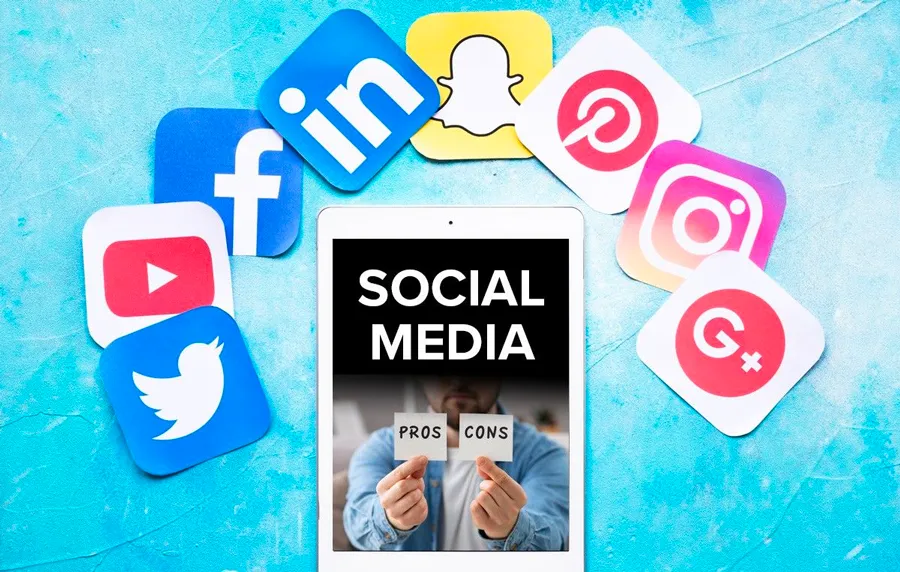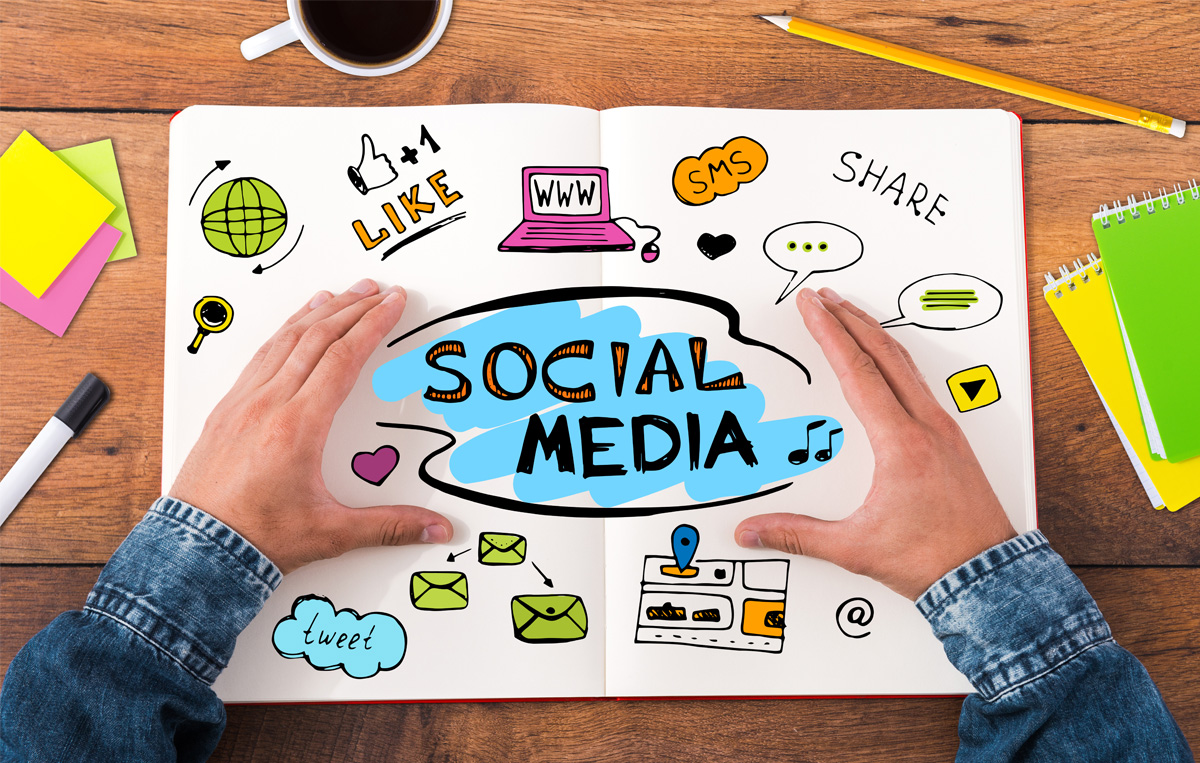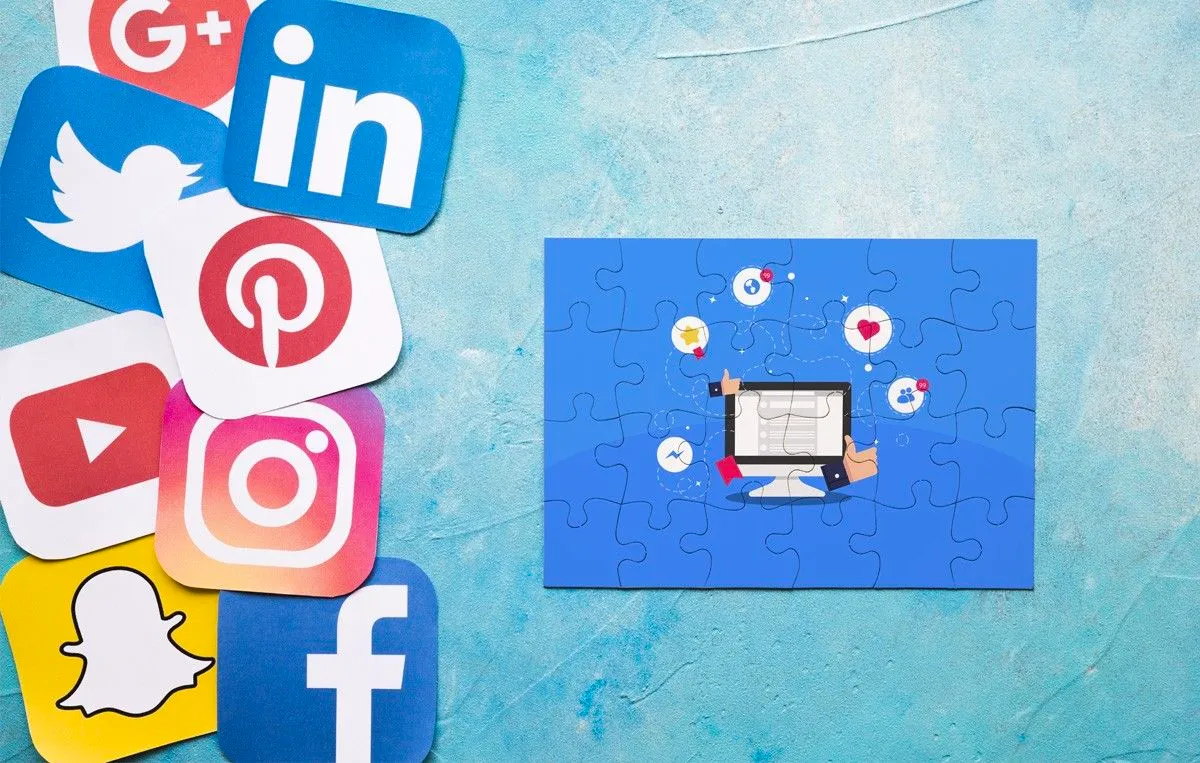As we navigate the 21st century, social media stands out as a pivotal force that has reshaped how we communicate, work, and connect.
Platforms like Facebook, Twitter, Instagram, and LinkedIn have seamlessly integrated into our daily lives, becoming more than just tools—they are now central to our global culture. Their widespread adoption is a testament to humanity’s innate desire for connection and community.
Yet, these platforms’ vast reach brings unparalleled opportunities and significant challenges. From fostering global connections to the potential pitfalls of misinformation and social media addiction, the digital realm is rife with contrasts.
This article offers a comprehensive exploration of the multifaceted world of social media and tips on balancing it.
Let’s get right to it with the…
Social media has become an indispensable tool in our digital age, offering a myriad of benefits that enhance our personal and professional lives.
But why is it so impactful?
Let’s answer that question with these five advantages of social media.
1. Connectivity and Networking
Social media serves as a conduit for establishing personal and professional ties across the globe. Among its many advantages, the ability to network beyond geographical confines through instant communication stands out.
At a personal level, it enables users to maintain ties with friends, family, and acquaintances, irrespective of their location. This sense of connection, fostered by platforms like Facebook and Instagram, solidifies relationships and offers a virtual realm for interaction and mutual support.
Beyond personal ties, platforms like LinkedIn cater to professional networking. Here, users can connect with peers, potential employers, and industry specialists.
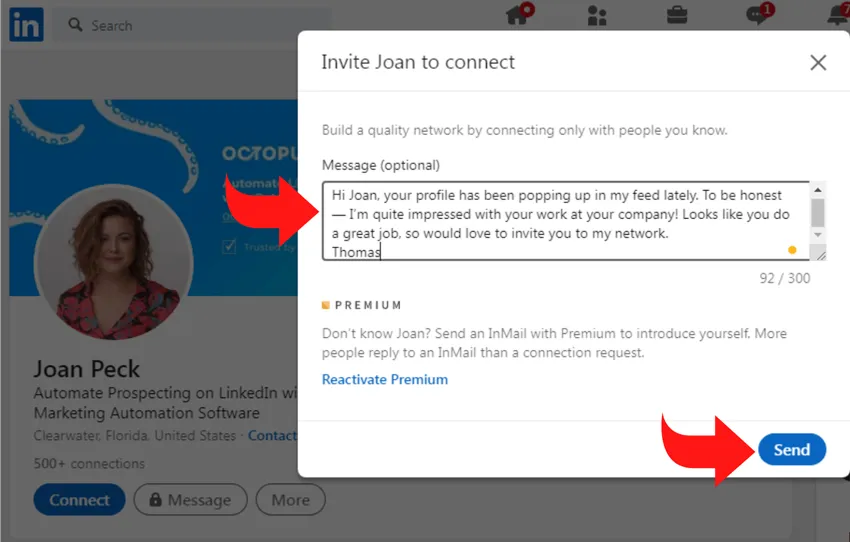
Based on mutual interests or backgrounds, LinkedIn suggests relevant connections that might open doors to collaboration or job opportunities. For example, a well-curated profile of a marketing expert might attract digital marketers with vast experience, paving the way for mentorship or valuable partnerships.
That said…
In the professional realm, timely communication is paramount. The digital age demands swift responses, and businesses can’t afford to miss out on opportunities due to overlooked messages. That’s where the advanced SocialPilot Social Inbox steps in.
It pulls in all your messages from Facebook, Instagram, LinkedIn, and more into one place, so you never have to switch tabs again. What’s new? Now, you get AI-generated responses tailored to your brand’s tone and guidelines, faster message syncing, and smart filters to prioritize what matters.
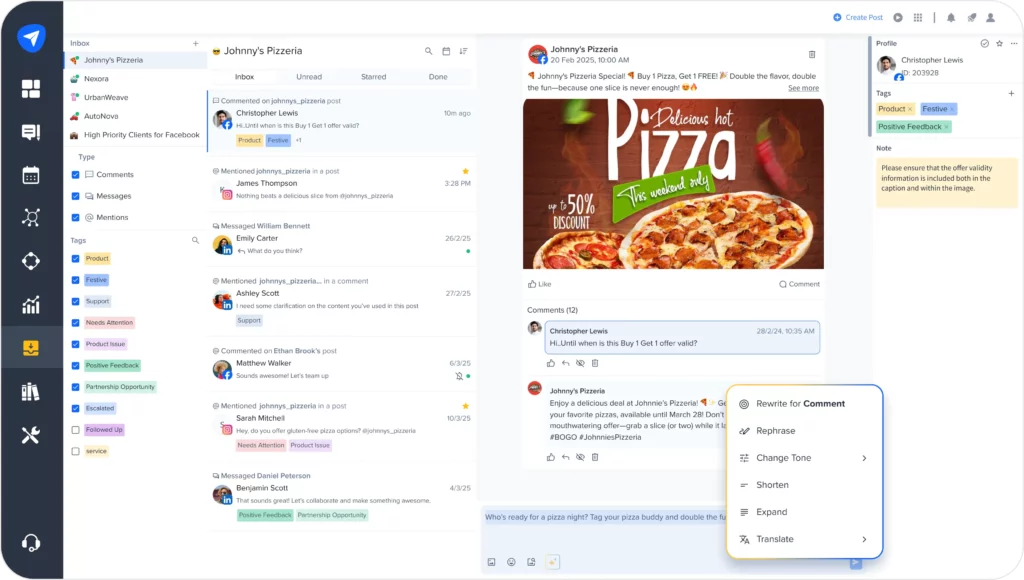
They ensure that businesses stay on top of their communications by consolidating messages from various platforms into one unified inbox. It’s not just about networking; it’s about optimizing those connections for success.
2. Information Sharing and Access
The internet has democratized access to information, with social media at the forefront of rapid information-sharing.
And guess what?
As people consider the pros and cons of social media, more are turning to platforms like Twitter to consume news, as real-time updates are instantly available on any major event or crisis occurring anywhere in the world.
During global crises, such as the COVID-19 pandemic, social media becomes a chief source of credible updates from health experts, government agencies, and international organizations. This access to reliable information on infection rates and public health guidelines empowered individuals to take necessary precautions in their own communities and stay informed on relevant developments.
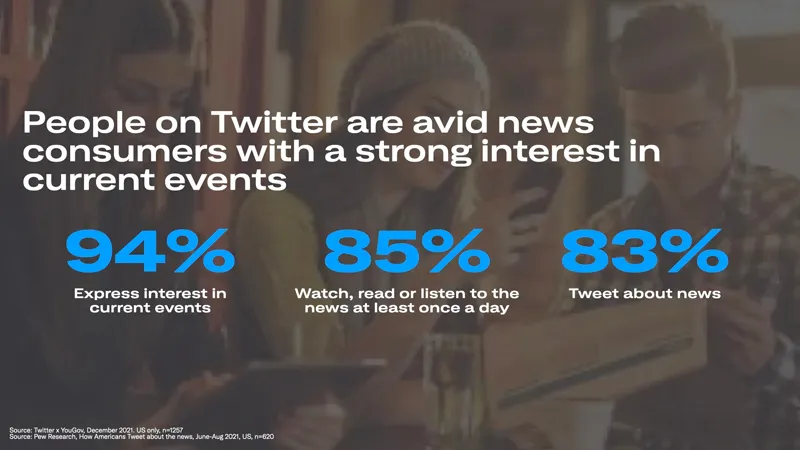
In the context of armed conflicts or wars, journalists and news agencies can share up-to-the-minute updates on peace negotiations, allowing people around the world to stay informed.
While perspectives that complement mainstream media coverage empower individuals to share their experiences, accurate information, especially in the context of ongoing wars, is important to ensuring the safety of citizens. For instance, to ensure content and media shared about the war in Ukraine are reliable, Twitter has taken various measures like increasing ease of access to updates and labeling state-affiliated media.
3. Business Opportunities and Marketing
A new era of marketing and advertising opportunities has emerged with the advent of increased social media usage. With billions of users actively engaging on social media, businesses have unprecedented potential to reach and connect with their target audiences.
A key advantage of social media marketing is targeting specific audience segments. Instagram, in particular, has emerged as a potent platform for advertising, offering a visually engaging experience for users on the Explore page.
Here’s an example:
Sephora UAE, a beauty retailer that leveraged Instagram’s advertising capabilities to promote its products by targeting users interested in beauty and cosmetics.

One of Sephora UAE’s ad campaigns promoted a new makeup collection with Milk Makeup, specifically targeting young adults interested in beauty products and living in the UAE.
The results showed an “80% increase in favorability when adding Reels ads, compared with business-as-usual video campaigns” and higher brand awareness with Gen Z audiences (ages 18–24). This level of precision targeting via Reels ads as a standalone placement ensured that ads were delivered to the most relevant users, increasing the likelihood of conversions.
By leveraging Instagram’s precise targeting options, Sephora UAE reached a substantial number of potential customers within the desired demographic, which you can also take advantage of with cost-effective and highly targeted ad campaigns on social media.
4. Customer Engagement and Support
While most websites have a contact page or customer service option, some customers will message a company’s social media page.
Here’s an interesting fact:
Consumers are reaching out to brands via social media at least monthly (and as frequently as weekly) for support.
A stellar example of a brand effectively using social media for customer support is Southwest Airlines. The airline receives 3,000 mentions and hundreds of DMs daily, so they have a dedicated team to answer any customer questions on social media platforms like Twitter.
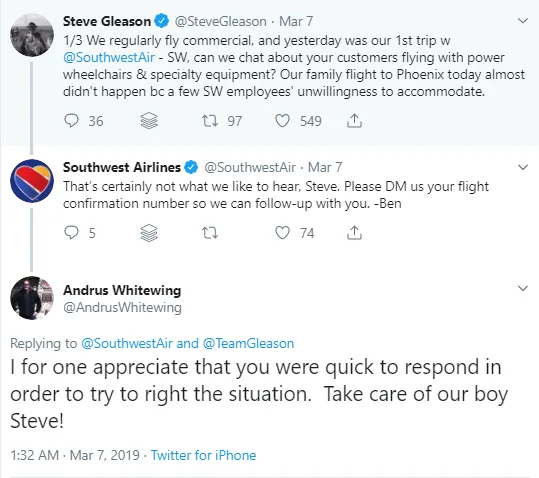
Through their various social media accounts, Southwest Airlines promptly responds to customer concerns, maintaining an industry-leading response time of 15 minutes. By responding in real-time, Southwest Airlines addresses customer issues promptly and showcases its commitment to excellent service.
The emphasis placed on customer service and swift response times enhances customer loyalty and generates positive word-of-mouth. When taking into consideration the pros and cons of social media, incorporating it as part of an overall support strategy ensures that all queries and points of contact are addressed.
5. Business Growth
Businesses of all sizes are making a move in today’s digital landscape. They’re harnessing the unparalleled power of social media to amplify growth, fortify brand recognition, and cultivate unwavering customer loyalty.
And here’s the thing:
Platforms such as Facebook, Instagram, and LinkedIn aren’t just for socializing anymore. They’ve transitioned into indispensable business tools.
Thinking of cost-effective marketing?
For emerging startups and small-scale enterprises, social media is the answer. It sidesteps the exorbitant costs of traditional advertising. For example, a quaint bakery uses Instagram to spotlight daily specials, captivating followers with tantalizing visuals.
On the other hand, corporate giants aren’t just watching from the sidelines. They’re deploying social media for robust brand reinforcement and proactive reputation management. The result? Through consistent customer engagement and prompt redressal of concerns, businesses infuse a human touch into their brand, fostering trust and relatability.
Curious if your content is actually working?
With the newly upgraded SocialPilot Analytics, you don’t have to guess anymore.
Get a deeper, clearer view of your performance with:
-
Enhanced visual dashboards that make metrics easy to understand at a glance.
-
Custom report builder to showcase only what matters to your brand or client.
-
Multi-platform insights—analyze Facebook, Instagram, LinkedIn, and more in one place.
-
Scheduled reporting that automatically sends reports to clients or stakeholders—no last-minute scrambles.
-
New engagement and audience metrics to better understand what’s driving real results.
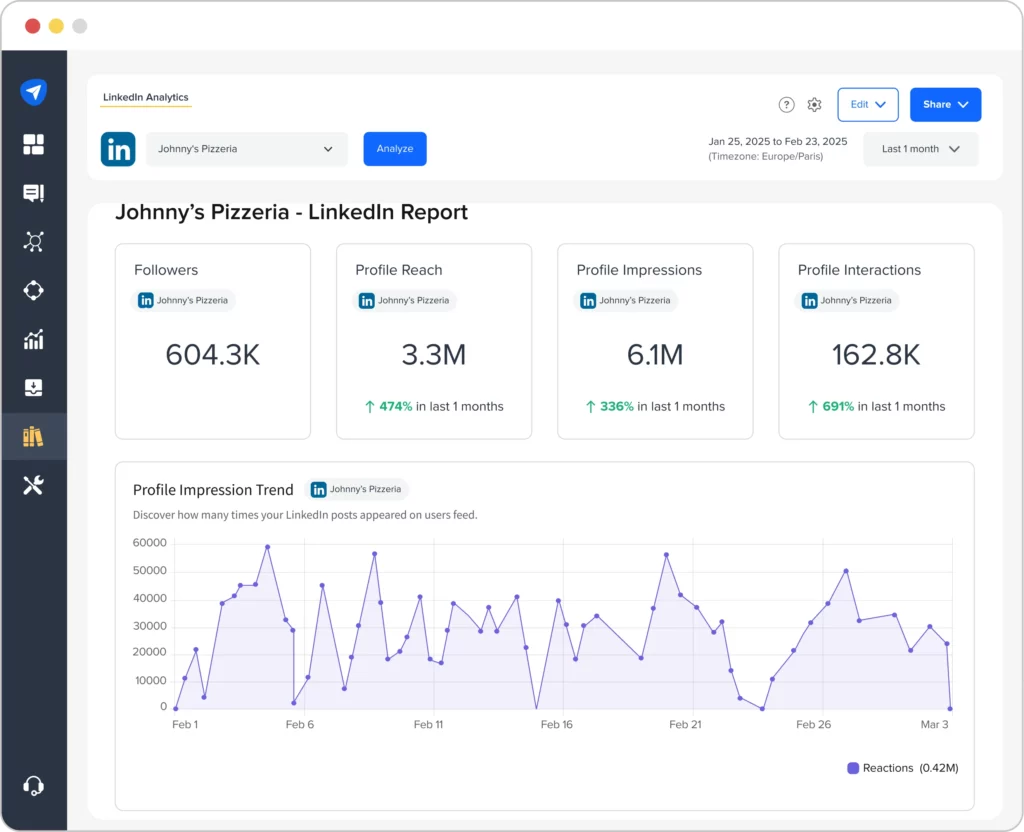
With these upgrades, it’s not just about tracking data, it’s about using it to grow smarter and faster.
Like a coin, there’s another side to social media – one with disadvantages. Let’s shed light on some of the cons of social media.
1. Privacy and Security Concerns
Security leaks are a growing issue as users appraise the pros and cons of social media. While social media platforms offer incomparable connectivity and interaction, they also expose users to risks related to hacking and phishing. To mitigate these risks, many users turn to services like NordVPN to enhance their online privacy and security.
One of the most concerning risks associated with social media is data breaches, where unauthorized individuals gain access to user data. High-profile cases of data breaches have eroded public trust in certain social media platforms.
Information theft is another major concern stemming from issues on social media.
Here’s what happened in 2021:
A personal data from 533 million Facebook users was exposed in a massive leak due to a security flaw that allowed scraping. The data included sensitive information such as phone numbers, birth dates, and email addresses, leaving millions of users vulnerable to smishing, identity theft, or other scams.
In light of these issues, social media users should be as proactive as possible in safeguarding their data. Be sure to review your privacy settings regularly to know what information is being shared with the public and third-party apps.
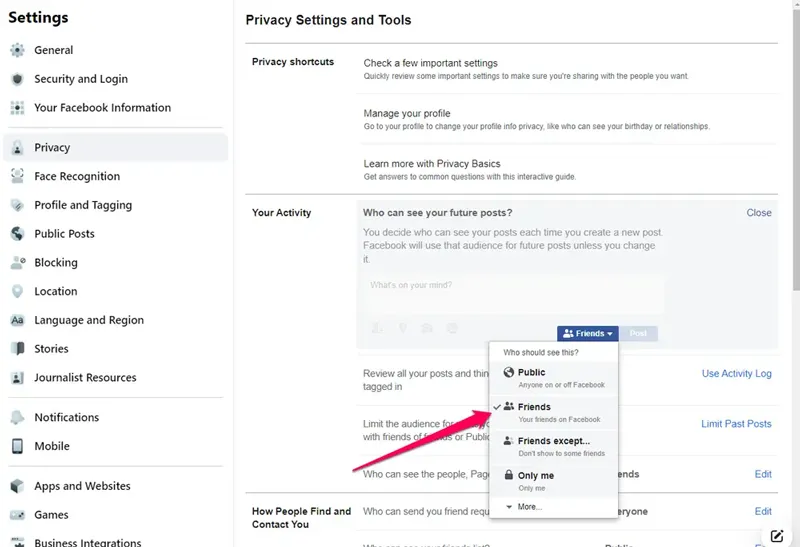
Cybercriminals use social engineering tactics to manipulate users into revealing sensitive information, and by capitalizing on the wealth of personal data available on social media profiles, scammers can lead users to disclose confidential information unknowingly.
Did you know:
According to the Pew Research Center, 69% of adults and 81% of teens in the U.S. use social media, and with that comes concerns about its impact on mental health.
Excessive use of social media has been linked to adverse effects on self-esteem and well-being, and new research has shed some insight into what risks are posed and how to mitigate online engagement. Although there are various pros and cons of social media, various studies have found links between heavy social media usage and feelings of inadequacy about life, isolation, depression, and anxiety.
Constant exposure to curated images and edited highlight Reels of other people’s lives can lead to unrealistic comparisons to others and cause social media envy.

The concept of “social media envy” can cause people to feel pressure to present an idealized version of themselves, leading to an unhealthy cycle of seeking external validation and reinforcing the belief that your self-worth is tied to your online popularity.
Constantly viewing other people’s seemingly nonstop, exciting experiences, and social gatherings without you can lead to feeling isolated and lonely. Real-life interactions may take a backseat to virtual ones, further exacerbating these feelings.
But, that’s not all.
Apart from direct psychological effects, social media use can also increase the risk of poor sleep patterns, according to research from the journal Sleep Health.
Disrupted sleep patterns can reduce energy levels, induce daytime sleepiness, and reduce cognitive functioning.
3. Misinformation and Fake News
Due to rapid shareability, misinformation has become a pervasive issue on social media, which can pose significant dangers to individuals and society as a whole.
A concerning aspect of misinformation is its potential to influence public opinion and behavior, as false information can shape people’s perceptions, leading to biased views or decisions that are based on inaccuracies.
Where was this especially evident?
The January 6 Capitol Riot, where false claims and narratives spread on social media platforms like Facebook played a role in inciting violence and fueling tensions.
During the 2020 U.S. Presidential election, Facebook groups experienced a surge of 650,000 posts delegitimizing Joe Biden’s victory between election day and January 6, with many perpetuating conspiracy theories and incitements to violence.
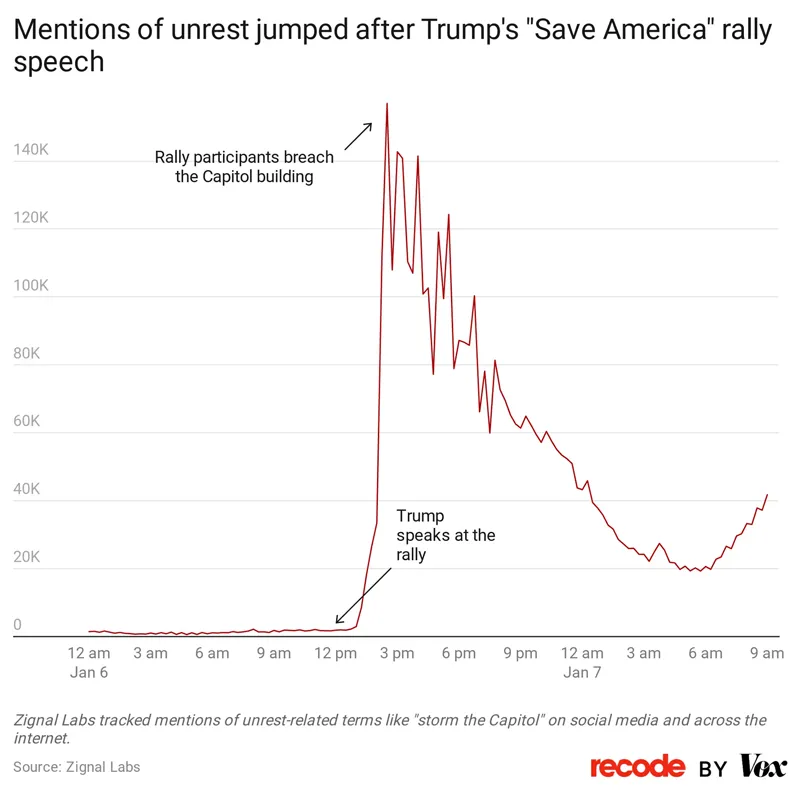
To combat the dangers of misinformation on social media, individuals must weigh the pros and cons of social media usage, especially during politicized events, adopt responsible information consumption practices, and practice fact-checking.
Here are some tips to navigate the digital landscape responsibly:
- Verify Sources: Always verify the credibility of the sources before sharing information. Rely on reputable news outlets and fact-checking organizations to confirm the accuracy of claims.
- Examine Context: Look for the broader context and multiple perspectives before forming an opinion. Misinformation often thrives when taken out of context or presented in a one-sided manner.
- Be Cautious with Sharing: Before sharing content, consider whether it is reliable and aligns with your values. Avoid sharing information that promotes hate speech, discrimination, or conspiracy theories.
- Educate Others: Encourage your social media connections to be critical thinkers and responsible information consumers. Share fact-checking resources and guidelines for discerning credible information from misinformation.
- Report False Information: If you encounter misinformation on social media, report it to the platform and alert others to its inaccuracies. Responsible reporting helps curb the spread of false information.
4. Negative Online Behavior
While social media can be a connective tool, cyberbullying and harassment can result in threats, attacks, and insults from anonymous users.
Cyberbullying, in particular, is a distressing consequence of negative online behavior. The advantages and disadvantages of social media can be difficult to balance as anonymity offered by some platforms emboldens individuals to engage in cyberbullying without fear of accountability.
Harassment is another alarming aspect of negative online behavior. Unfortunately, social media’s open and accessible nature provides a vast audience to engage in disruptive and harmful behavior.
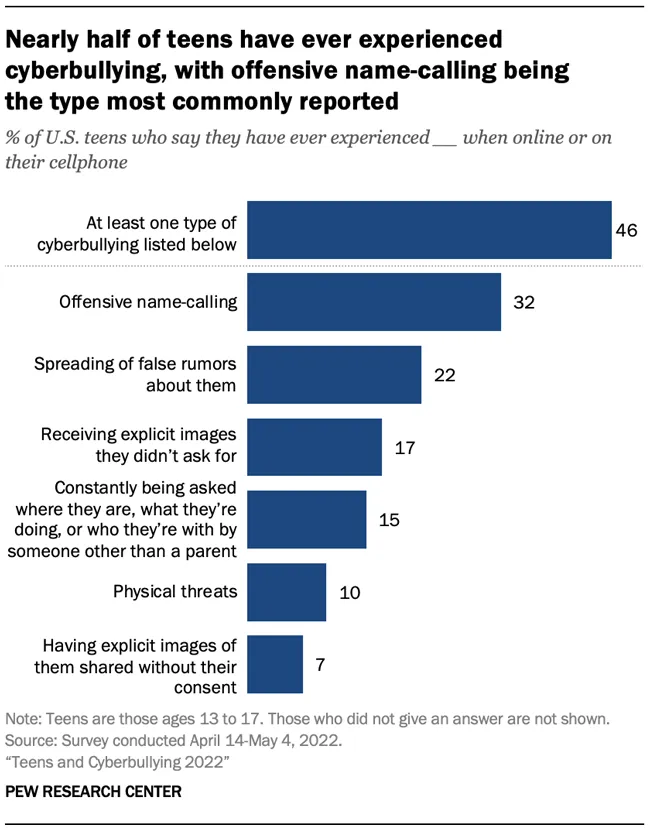
To make it worse:
The degradation of interpersonal communication on social media is evident in the rise of online trolling. Trolling has only become prevalent with the advent of the internet. In fact, a survey of 8,000 young individuals across Europe found that 1 in 8 engaged in online harassment and 1 in 10 engaged in hate speech.
Addressing this issue to work toward a more inclusive digital environment will require a collective effort to curb harmful behavior online from social media platforms and users as well.
5. Diminished Face-to-Face Interactions
The rise of social media has inadvertently led to a decline in face-to-face interactions. While platforms like Facebook and Instagram provide a virtual space for communication, they can’t replace the depth and authenticity of in-person conversations.
In fact:
A recent study published in the Journal of Technology in Behavioral Science found that reducing social media usage by just 15 minutes a day can lead to significant improvements in one’s social life, vitality, and overall health.
This suggests that while social media offers a convenient mode of communication, it’s essential to strike a balance to maintain genuine human connections. The study further emphasized that young adults, who are among the heaviest social media users, often spend several hours daily on these platforms, potentially sidelining real-world interactions.
It’s crucial to remember the irreplaceable value of face-to-face connections and the deeper bonds they foster.
Now, let’s look at some tips to balance them.
Navigating the digital realm requires a strategic approach to harness the benefits of social media while mitigating its drawbacks. Here are five tips to do so.
1. Setting Boundaries and Limiting Screen Time
Social media has permeated nearly every aspect of our lives and blurred the lines between work and personal time, so you must set clear boundaries. You can prevent it from encroaching on other responsibilities by allocating certain times of day to engage or scroll.
More benefits?
Limiting screen time can also include reclaiming time usually spent on social media to engage in other hobbies you have. Learning to recognize the merits and demerits of social media if it is becoming overwhelming or detrimental to other aspects of your life is crucial to taking a step back and reevaluating how much time you spend on certain apps.
2. Prioritizing Privacy and Security
While users are increasingly sharing private or personal information online, which has obvious risks, it is imperative that you take specific measures to protect your privacy on social media.
One way to prioritize your safety online is to review your privacy and security settings as often as possible. Every platform has different features that are updated at various times to control who can see your posts, profile, and other information, so customize them to align with your personal preferences.
Additionally, be wary of unsolicited messages and suspicious links in your DM requests to ensure that you’re not entering any third-party applications while on social media, which can prevent any collection or misuse of your personal information.
Lastly, using strong and unique passwords, such as those managed by NordPass, to ensure it isn’t easily guessable for your social media accounts is an often overlooked but essential step in protecting yourself online.
Next, you should be…
By adopting responsible social media habits, you can mitigate the potentially harmful aspects of social media to maintain a more overall healthy balance.
Engaging in constructive conversations, blocking spam or troll accounts, and supporting others’ accomplishments can create a more positive digital community.
What’s more:
Being selective about the type of content on social media can be key to maintaining mental well-being, and limiting exposure to triggering content can reduce unnecessary comparisons.
Being responsible about using social media can optimize your digital experience and protect your mental health. Balancing the pros and cons of social media by prioritizing real-life connections over online interactions ensures that your digital presence is fulfilling and makes a positive contribution to your life.
4. Engaging in Meaningful Online Interactions
While social media platforms offer various opportunities for connection and communication, managing the quality of these interactions is how you can create meaningful relationships and foster a sense of community.
By actively listening to others, we demonstrate genuine interest and empathy for the thoughts and feelings expressed by friends and followers. Taking the time to respond thoughtfully to others’ posts or messages can lead to stronger connections.
You can find shared community and support within social media by prioritizing meaningful connections over superficial interactions.
Last but not least…
Navigating the myriad of social media platforms for both personal and professional interactions can be a complex endeavor. SocialPilot emerges as a solution, offering a comprehensive toolset to streamline and enhance online activities.
With SocialPilot, users benefit from functionalities that simplify content scheduling, analysis, and monitoring across various platforms. Rather than juggling multiple social media sites, SocialPilot’s unified dashboard allows for crafting and timing posts for several accounts, ensuring strategic content deployment and a consistent online presence.
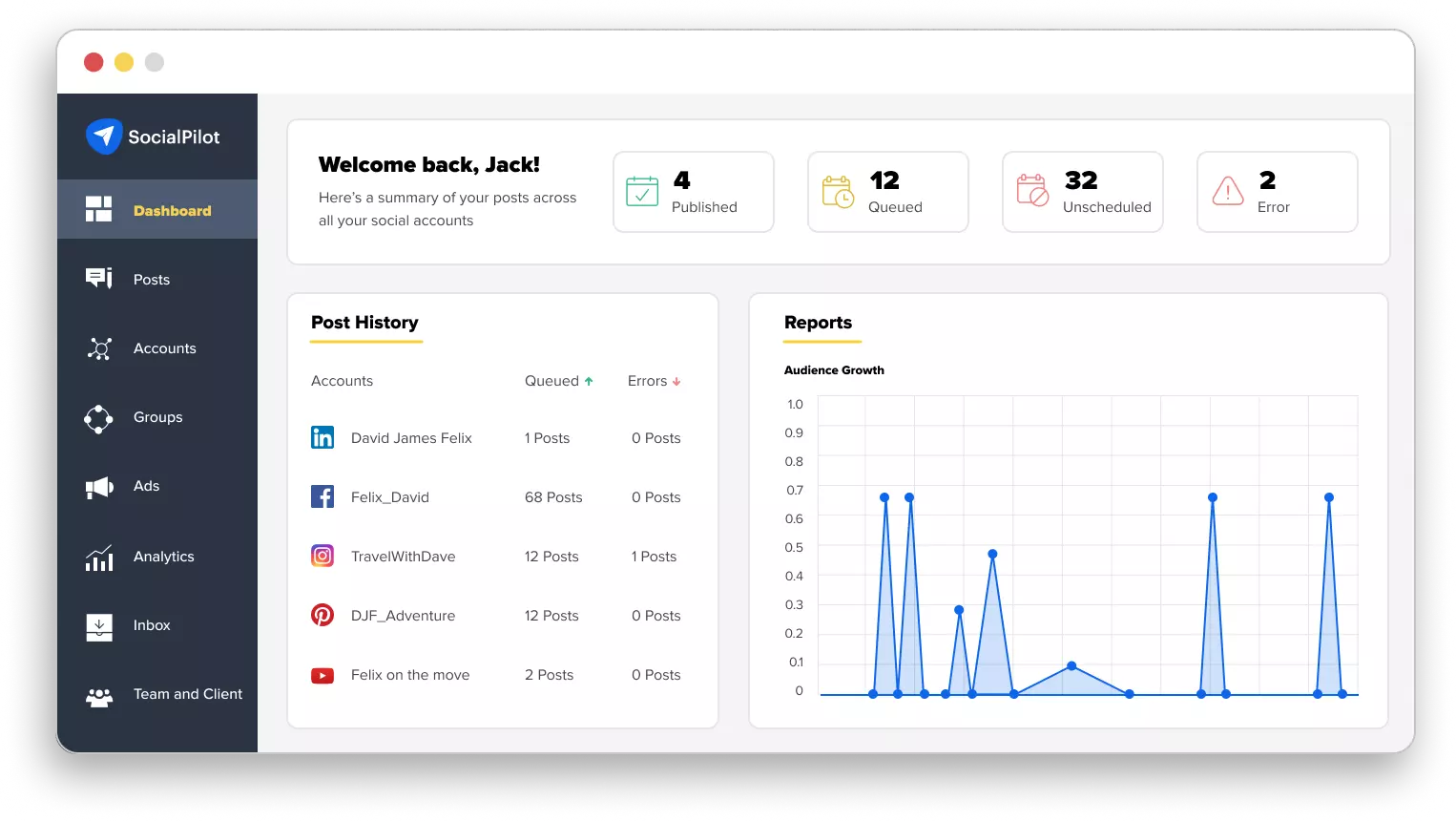
Additionally, the platform’s robust analytics and reporting tools grant users valuable insights into their content’s performance, paving the way for an optimized social media approach.
To counter the pitfalls of excessive social media engagement, SocialPilot’s scheduling feature helps curb the compulsion to constantly check and browse feeds. This fosters a more deliberate approach to online interactions, enabling users to utilize social media more effectively and judiciously.
Conclusion
Social media stands as a powerful tool in our modern world, providing unparalleled avenues for connectivity, disseminating information, fostering business expansion, and facilitating genuine customer interactions.
Yet, its vast expanse is not without shadows. With pressing issues such as privacy breaches, potential detrimental effects on mental well-being, and the rampant spread of misinformation, the onus falls on users to navigate this digital realm with discernment and prudence.
As we embrace the many opportunities social media presents, it’s imperative to wield it with a sense of responsibility, ensuring that its potential is harnessed for positive impact while safeguarding against its inherent challenges.
